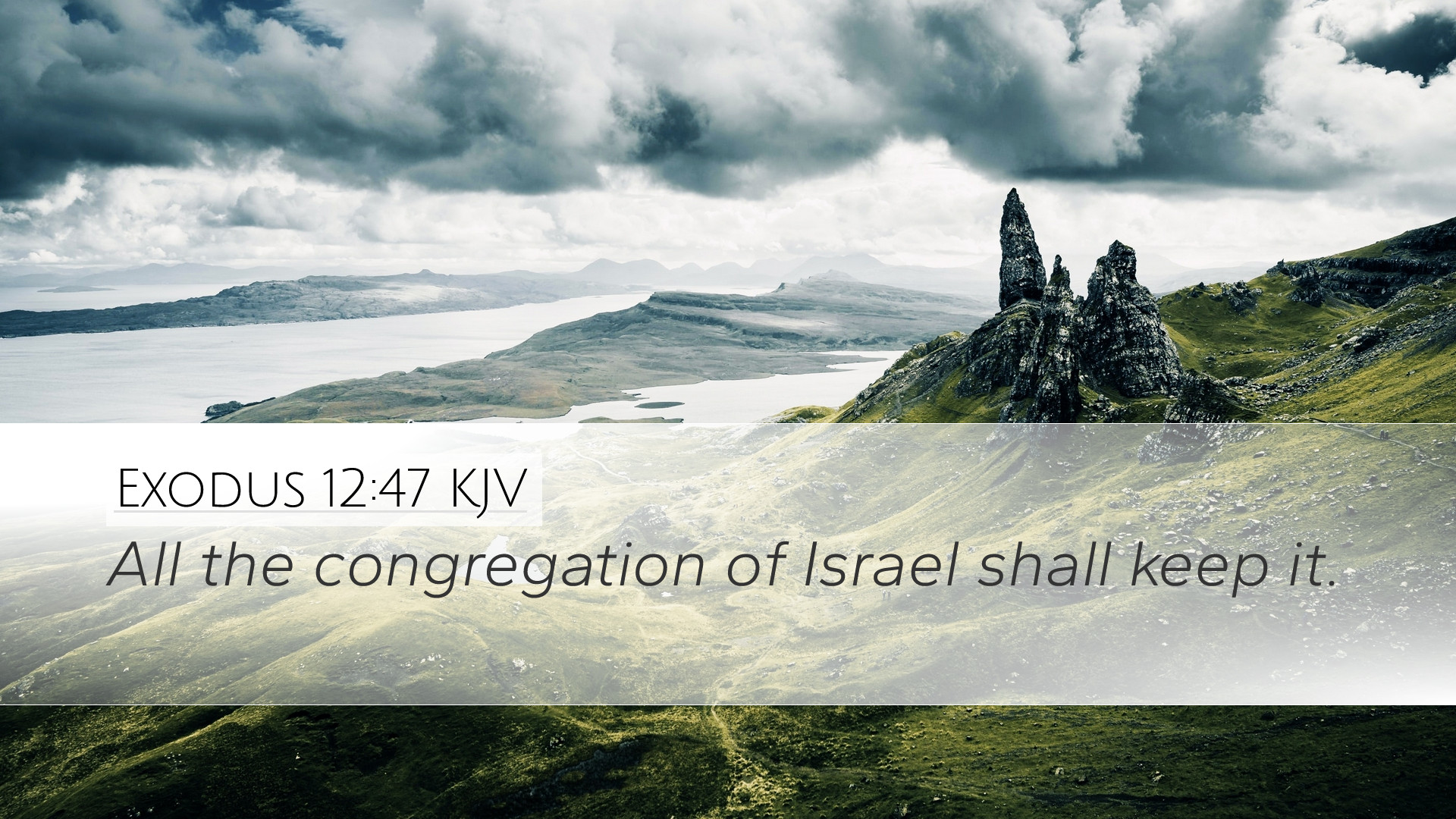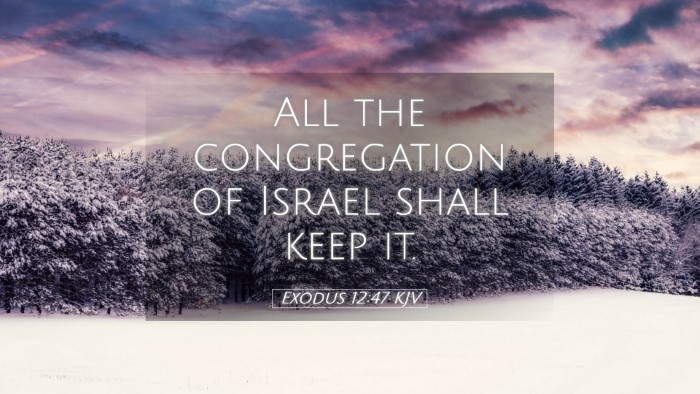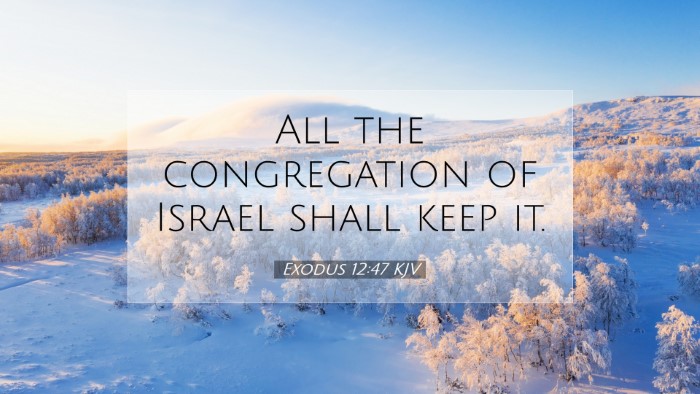Exodus 12:47 - Commentary Summary
Exodus 12:47 states: “All the congregation of Israel shall keep it.” This verse emphasizes the communal responsibility of the Israelites in observing the Passover, marking it as a pivotal event in their collective identity and divine covenant.
Contextual Background
The context of Exodus 12 is the instruction for the Passover, which was to be observed on the night before the Israelites' exodus from Egypt. The meticulous guidelines provided by God through Moses establish the importance of compliance and unified action amongst the people. This command encapsulates the essence of community in the life of the Israelites.
Insights from Matthew Henry
Communal Obligation: Matthew Henry highlights that the Passover was not merely a personal affair but one that required the entire congregation's involvement. He asserts that the observance of sacred practices is most meaningful when embraced collectively, strengthening community bonds.
Symbol of Unity: According to Henry, the participation of the entire congregation in the Passover signifies their unity as God’s people. It served to remind them that they were chosen as a nation to witness God’s power and mercy, establishing their identity as God’s covenant people.
Insights from Albert Barnes
Divine Command: Albert Barnes emphasizes the gravity of divine commands accompanying this verse. He notes that the phrase "all the congregation" signifies an indisputable ordinance from God that reflects His desire for communal worship and remembrance.
Seasons of Deliverance: Barnes adds that the observance of the Passover is not just a historical event but a seasonal reminder of God’s deliverance. It portrays the transition from slavery to freedom and sets a precedence for future generations to remain keenly aware of their identity.
Insights from Adam Clarke
Covenantal Community: Adam Clarke provides an in-depth analysis of the implications of this verse where he stresses that the entire congregation's participation in the Passover symbolizes the covenant relationship instituted by God. Failure to partake would not only reflect individual disbelief but a disconnection from the community of God’s people.
Ritual Importance: Clarke also reflects on the ritual significance of the Passover. He elaborates on how this event would set a precedent for future festivals and observances in Israel, thus perpetuating the narrative of their redemption from Egypt as a continuous cycle of remembrance and thanksgiving.
Theological Reflections
This verse invites deeper theological reflections regarding the nature of community in faith practices. The communal aspect of the Passover challenges individuals to recognize their place in the larger narrative of salvation history.
- Community in Faith: This passage serves as a reminder of the commitment required not just on an individual level but also as a body of believers.
- Collective Memory: The practice of communal observance fosters a collective memory, an essential component of identity for the Israelites, which translates into the Christian community today.
- Significance of Rituals: The communal nature of rituals emphasizes their importance in forming and sustaining community identity, highlighting how observances transcend time and cultural differences.
Application for Today
For modern readers—pastors, students, theologians, and scholars—Exodus 12:47 stands as a profound reminder of the necessity for communal integrity in faith. It challenges individuals to actively engage in their respective faith communities, encouraging participation in communal acts of worship and remembrance.
The call to observe the Passover collectively resonates in contemporary Christian practice as well. It urges believers to consider how they contribute to and nurture their faith communities, ensuring that the significance of God's redemptive work is among them in their worship practices.
Concluding Thoughts
In sum, Exodus 12:47 serves as a pivotal reminder of God's intention for His people to act in unity and uphold their identity as His chosen ones. The insights from historical commentaries reflect a timeless truth regarding the importance of community in the life of faith, urging theologians and practitioners alike to continue fostering this essential aspect of spiritual practice.


